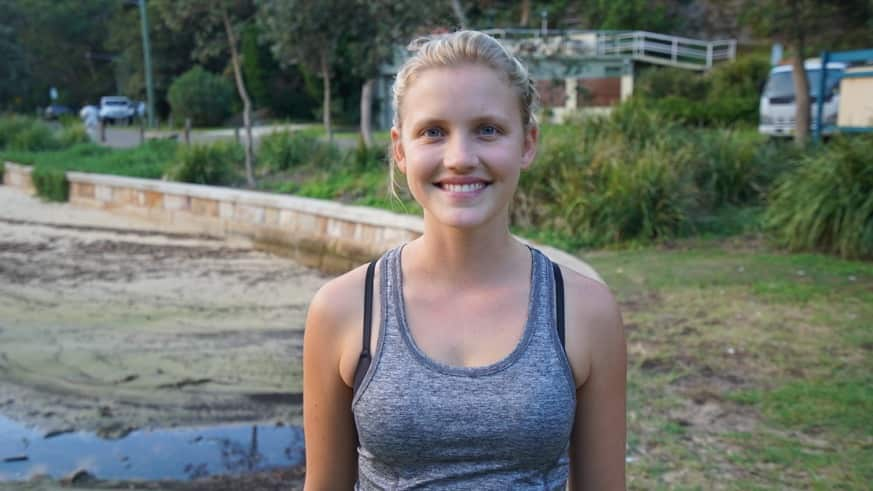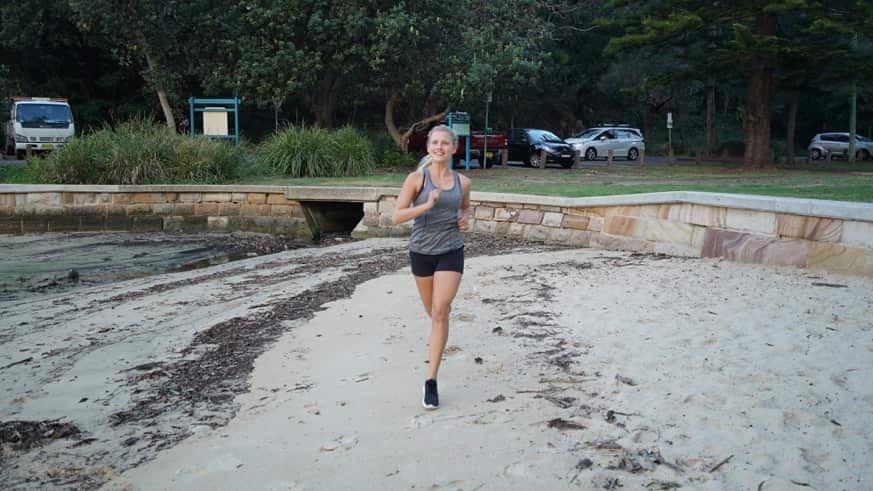Being born with one arm would be enough of a challenge for any of us. But also having been diagnosed with severe anxiety and depression at only 11 years old is inconceivable.
However, for thirty-five-year-old Pilates instructor, yoga teacher and world-class champion pole performer, Deb Roach, exercise has proven to be a life-saver.
Deb, who says she was humiliated throughout school because she was different to the other children, especially during physical activity classes, overcame tremendous obstacles to finally embrace what was to become her passion.
“Exercise definitely changed my relationship with my mental health. The more I move and breathe, the more time I spend out of my head and in my body and the less likely I am to get drawn down the plug hole again,” Deb says.

New research conducted by researchers from Western Sydney University, the Black Dog Institute and the University of New South Wales has found that physical activity can protect against the emergence of depression, regardless of age and geographical region, by up to 22 per cent. Corresponding research also found that people who did no exercise at all had a 44 per cent increased risk of developing mental illness.
Sadly for Deb, exercise wasn’t always a favourable option.
“School sport was awful and demoralising because I moved in a very different way to the other kids. Trying to adopt a two-armed movement to suit my body was really challenging and not in a ‘good’ challenging way, in an ‘oh crap, I really can’t do this’ kind of way”, she says.
“To make matters worse, when I finally found a sport I loved; Netball, I was told by the coach that I brought the team performance down, and that she’d prefer it if I left.”
Instead of taking it to heart, this ignited a fire inside Deb, full of determination to bring her where she is today.
It was one thing in particular that drew Deb’s attention to the importance of exercise: her severe depression and anxiety diagnosis. After Deb attempted suicide as a teenager, her doctors relentlessly tried different anti-depressant medications to no avail.
“When I start to sweat, all my worries drip away.”
“I felt like I’d been laboritised. I hated it. I tried a few different medications and I felt like I was either under a black cloud or really manic,” she says.
“I decided that I wanted to manage my anxiety and depression naturally and try to understand myself; so I began combine self-knowledge…through therapy…with studying my movement and breath through exercise,” she says.
Now an acclaimed three-time international pole championship winner, Deb strongly advocates for the benefits of exercise for mental health. She works closely with the mental health organizsation, Black Dog Institute, to provide useful exercise tools, and spread the message through campaigns like Exercise Your Mood week.
Deb’s journey is not uncommon.
Amy Hargrave, 23, was diagnosed with depression and anxiety during her HSC studies in year 12.
“I’d always experienced anxiety growing up but it particularly manifested during HSC. Whether it was panic around exams or just the feeling I couldn’t be present with friends and family; I knew I wasn’t in a good place,” Amy says.
“One day I just went for a run to clear my head from studying, and I sort of became addicted.

“When I start to sweat, all my worries drip away. If I exercise in the morning, a positive feeling stays with me throughout the day.
Amy also collaborates with the Black Dog Institute as a community and youth presenter, which includes visiting schools around Sydney to advocate for the importance of exercise to manage mental health, while also teaching students to recognise when they’re not doing so well mentally and how to seek treatment.
The science behind it
The latest research conducted by researchers from Brazil, Belgium, Australia, USA, UK and Sweden pooled data from 49 unique cohort studies of people free from mental illness, examining if physical activity is associated with a decreased risk of developing depression.
In total, 266,939 diverse individuals were included in the study and followed up after 7.4 years.
The research team found that minimal physical activity reduced one’s risk of developing depression by 15 per cent, and that those participating in regular exercise, including the minimum requirements of 150 minutes a week, were able to reduce their risk by 22 per cent.
Co-author of the study, Dr Joseph Firth, Research Fellow at NICM Health Research Institute at Western Sydney University said, “The compelling evidence presented here provides an even stronger case for engaging all people in regular physical activity… in order to reduce the risk of depression across the lifespan.”
Dr Firth adds that the evidence that exercise also reduces symptoms of mental illness is irrefutable.
“I definitely think that exercise is hugely beneficial to those already suffering with mental illness, the literature is very well established in this area.
“Our research is very much building on the very strong evidence from clinical trials that if you do have a mental illness, you’re very likely to reduce symptoms if you participate in effective and regular exercise regimes,” says Dr Firth.

Amy believes this evidence is applicable to her journey.
“I think the finding that exercise can reduce cases of depression relates to my story. Without exercise I wouldn’t be able to recovery as quickly or as well from the depression and anxiety. It was something I’ve always known but it’s exciting there’s scientific evidence to back it up,” she says.
Contrastingly, another 2018 study led by Associate Professor Sam Harvey from the Black Dog Institute, monitored 34,000 adults over a period of 11 years. The results found that people who did no exercise at all had an overwhelming 44 per cent increased risk of developing depression compared to those who were exercising even one-two hours each week.
The latest findings coincide with the Black Dog Institute’s Exercise Your Mood week, from 30 April to 6 May, which encourages everyday Australians to improve their mental health through physical activity.
If this story raises any issues for you, please contact Lifeline on 13 11 14.
Insight is Australia's leading forum for debate and powerful first-person stories offering a unique perspective on the way we live. Read more about Insight
Have a story or comment? Contact Us


